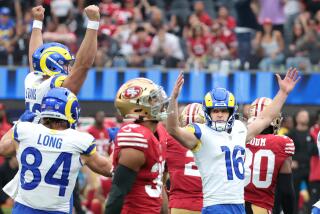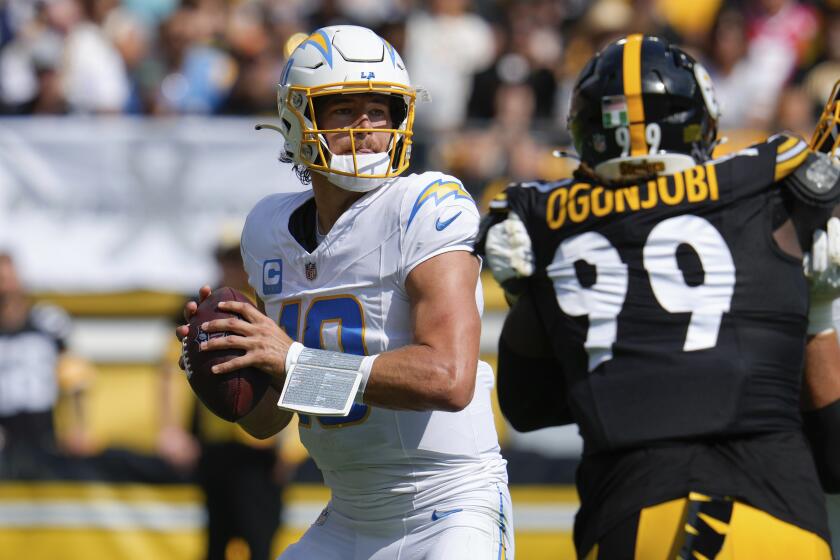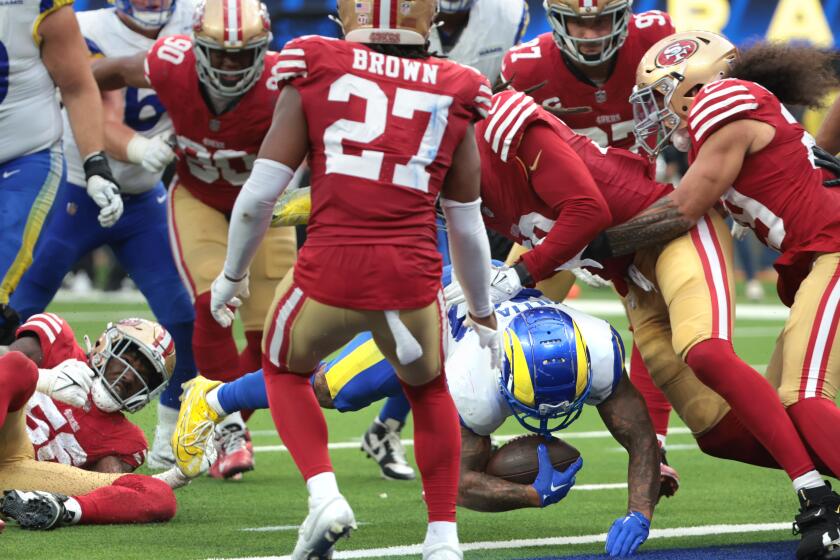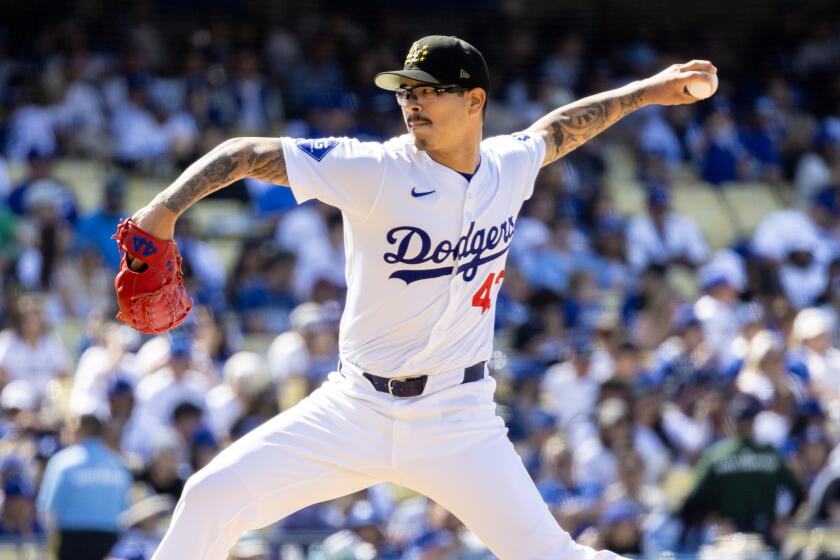Surprises Beneath the Cap : Baseball: Owners have other contentious items on their agenda that would go into effect if they implement their last, best offer.
If baseball’s major league owners ultimately declare a bargaining impasse and unilaterally implement their last, best offer to the players’ union, it will include, of course, the much debated salary cap, along with significant restrictions on free agency and the elimination of salary arbitration.
The implemented offer might also include a laundry list of other less publicized items on which there has been virtually no negotiation, let alone resolution.
Referring to those items Friday, Donald Fehr, the union’s executive director, said many in themselves represented “old-fashioned union busting” and would, as a package, wipe out 20 to 25 years of union progress.
“These are the kinds of things you do if the goal is to destroy any organization that represents players, and they wouldn’t have even (proposed) them if that wasn’t their goal,” Fehr said.
Union busting?
“That’s errant nonsense,” owners’ negotiator Richard Ravitch said. “I’ve said many times, publicly and privately, that baseball needs a strong union. It can’t function without the players being ably represented. They have been and continue to be.”
Ravitch and the owners presented their so-called “non-economic” proposals to the union on May 23.
Fehr said Friday that amid the salary-cap debate, there has been virtually no opportunity to discuss these other issues.
“They may not be able to implement them because there has been no bargaining on them, but that’s a litigation point,” Fehr said.
“I still hope it doesn’t come to (unilateral implementation of a new system), but I still think that’s their objective.
“Of course, they will only do it if they want the strike to continue next year.”
The Times on Friday obtained a copy of the union memorandum sent to players describing the “non-economic” proposals. It would, among other things:
--Allow a club to terminate a player’s contract for any reason. A player may now be terminated only if he lacks skill or materially breaches his contract, and in the case of a disciplinary release the club must show “just cause.”
--Allow a club to negotiate contract clauses that restrict or eliminate a player’s rights as defined in a bargaining agreement.
--Eliminate the 20% maximum cut rule for all players eligible for free agency and arbitration.
--Eliminate the right of a five-year player to demand a trade.
--Eliminate the requirement that a player must consent to an injury rehabilitation assignment to the minors.
--Prevent any player called up in September from being credited with major league service time, delaying his eligibility for free agency, arbitration and the pension plan.
--Restrict a player on the disabled list to 50% service time rather than 100%.
Ravitch has said that if the salary-cap issue is resolved, all else will fall into place quickly.
Fehr, however, disputed that, saying nothing has been resolved in the 20 months since the owners voted to reopen negotiations a year early, so quick resolution to everything that would still be on the table seems unlikely--particularly if the owners are serious about their “non-economic” proposals.
The cap, of course, is pivotal.
The union says it will never accept it, and the owners remain unlikely to remove it, since it is their last, formal offer that would be implemented, if it comes to that, and Ravitch has said the owners do not intend to play under the old rules again next year.
How would the union respond? By filing a grievance with the National Labor Relations Board and resuming the strike next spring.
However, neither step may be necessary.
Fehr said Friday he expects Congress to move against baseball’s antitrust exemption if the strike is still going after Labor Day.
“The case grows stronger the longer the stoppage goes,” he said.
Removal of the exemption would allow the union to seek injunctive relief through the courts. The union, Fehr pointed out, would not have had to use a strike as leverage against possible implementation by the owners if the owners did not have protection under the exemption.
In the meantime, there was no indication on Day 14 of the strike when formal negotiations will resume. A management source said the sides may meet individually with federal mediators Monday, then resume talks Tuesday.
The mediators called for a recess Thursday when it became obvious again that owners and players were locked into their ideological positions and emotions began to flare.
One of the liveliest exchanges, according to observers, took place Chicago White Sox owner Jerry Reinsdorf kept asking the players what percentage of the revenue they wanted.
“What do you want and we’ll cut a deal,” Reinsdorf repeated.
Snapped Fehr, “How much profit do you want, Jerry?”
Reinsdorf didn’t answer.
“There was some shouting and frustration, but there was also a lot of informal communication between owners and players who had never talked before,” a union lawyer said. “It’s hard to quantify the significance of that, but it could prove useful.”
The lawyer added, however, that the owners’ new voting rule--requiring 21 of the 28 clubs to approve a settlement--has left the union increasingly concerned.
He said it may be impossible for any group of owners--high-revenue, low-revenue or in between--to put together a deal, and “that’s the worst of all scenarios.”
More to Read
Go beyond the scoreboard
Get the latest on L.A.'s teams in the daily Sports Report newsletter.
You may occasionally receive promotional content from the Los Angeles Times.










